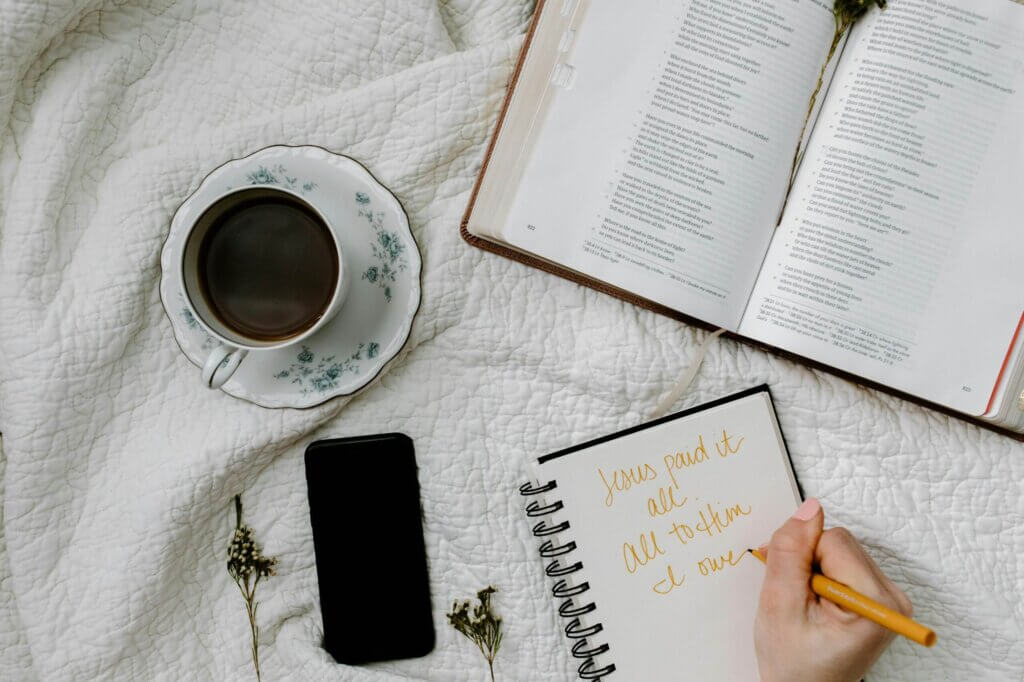A Biblical Guide for Money
I believe God desires for us to view our money and possessions through a biblical lens, which I refer to as the Money Grid. This grid is composed of four key principles. When we use this framework to assess our finances, it will help us discern what to purchase, what to save, what to give away, and where to focus our lives. The Money Grid is not overly complex, but it can be challenging to follow—because money, whether we realise it or not, can have a powerful grip on our hearts.
Religion vs. Relationship
People often tell me, “I’m not very religious.” To that, I usually respond, “Good! Neither am I!” When we talk about religion, we often refer to the rules people follow in an attempt to get closer to God, or perhaps reach enlightenment, reincarnation, or paradise. Religion, in this sense, is based on what we do to earn God’s favour.
But the Christian life is completely different. While some may label it a religion, Christianity stands apart in one crucial way: it’s not about what we do, but about what has been done for us. Christianity teaches that we cannot earn a relationship with God on our own. God is holy and perfect, and sin—anything we do that is against God’s heart—separates us from Him. If we are honest, we all sin, more often than we care to admit. And no amount of good works or religious practices can bridge that gap.
John 3:16 says: 16 “For God so loved the world, that he gave his only Son, that whoever believes in him should not perish but have eternal life.”
Because we could never reach God’s standard on our own, He sent His Son, Jesus, to pay the price for our sins. Jesus lived a perfect life on earth and then sacrificed Himself for you and me. He paid the price we could never pay, allowing us to be made spiritually clean and reconnect with God. Why did He do this? Simply because He loves us. He loves you. He is Love.
If you’re reading this and wondering what God thinks of you—He loves you. If you’ve made mistakes and feel unworthy—He loves you. If you’re exploring faith and are unsure where you stand—He loves you. By believing in Him and accepting His sacrifice, you can have a relationship with God, not only now but for all eternity. How incredible is that?

Love Changes Everything
Why is this concept of relationship versus religion the first part of the Money Grid? Because love changes everything. When we understand that Jesus loves us so much that He died for us, our natural response is to give our lives back to Him. It’s our way of saying “thank you” for all He has done.
“We love because he first loved us.” 1 John 4:19, ESV
When we truly grasp His love, it overflows into every area of our lives. We want to give Him our time, our talents, our possessions, our wealth—because we are awestruck by His love for us!
Thus, the second part of the biblical Money Grid is this: you and I can have a personal relationship with the living God—today, tomorrow, and for all eternity. That truth never ceases to amaze me. Each day, I am reminded of the incredible gift of salvation from my sins, and I can’t help but offer my life back to Jesus.
Wealth in Light of Eternity
Understanding that Jesus gave His life for us also shapes how we view wealth and possessions. They are temporary; they are tools, not treasures to be stored up on this earth. Jesus Himself reminded us of this:
“Do not lay up for yourselves treasures on earth, where moth and rust destroy and where thieves break in and steal, but lay up for yourselves treasures in heaven.” (Matthew 6:19-20, ESV)
In light of eternity, our money and possessions should be used to glorify God and further His Kingdom, not for self-centred accumulation.
Famous Quotes
Sometimes, reflecting on others’ thoughts can give us perspective on how money impacts our lives. Consider the following:
“It’s not the man who has too little, but the man who craves more, that is poor.” – Seneca
“Wealth consists not in having great possessions, but in having few wants.” – Epictetus
“I have held many things in my hands, and I have lost them all; but whatever I have placed in God’s hands, that I still possess.” – Martin Luther
These quotes remind us that the pursuit of wealth, apart from God, is ultimately unfulfilling. Instead, it’s about using what we have for His glory.
The Heart of the Matter
Jesus speaks directly to the condition of our hearts when it comes to money. He knows how easily we can become attached to our possessions, and He warns us of the spiritual dangers that come with this attachment:
“For where your treasure is, there your heart will be also.” Matthew 6:21, ESV
Our finances reveal the true state of our hearts. Are we trusting in God as our provider, or are we leaning on our wealth for security? Do we see our possessions as ours, or as resources entrusted to us by God for His purposes?
Final Reflection
The key to the Money Grid is this: money is a tool, but it is never the source of life. True life, true satisfaction, comes from a relationship with Jesus, who gave everything for us. When we grasp His love, we can’t help but respond by offering all we have—including our finances—back to Him. And in doing so, we find the freedom to live generously, joyfully, and with eternal significance.
“The earth is the Lord’s and the fullness thereof, the world and those who dwell therein.” Psalm 24:1, ESV
Let us see our money and possessions in light of eternity, and may we live as faithful stewards of what God has entrusted to us.
Prayer
Heavenly Father,
Thank You for the gift of Your love and the incredible sacrifice of Your Son, Jesus. Help us to see our money and possessions through Your eyes, understanding that they are temporary tools for Your Kingdom. May we hold them loosely, always remembering that true treasure is found in You alone. Guide us to be faithful stewards, using all that we have to glorify You. Give us the wisdom to trust in Your provision and the grace to live generously, joyfully, and with hearts fixed on eternity.
In Jesus’ name, Amen.




